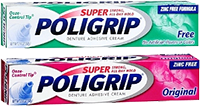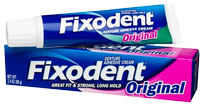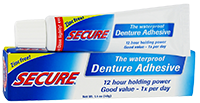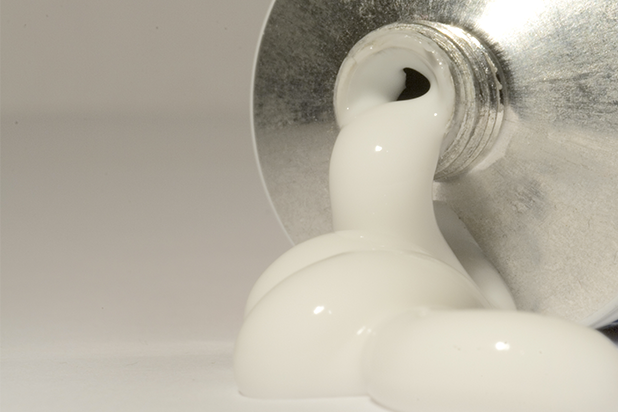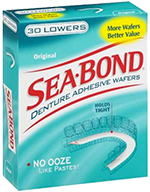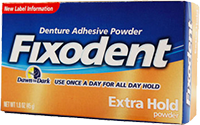Denture adhesives have been around for years. They are made to keep dentures in place. People are more confident that their dentures are kept in place all throughout the day. The best dental adhesive on the market today can cost a lot, and the costs can add up every month. The good news is that you can make your own denture adhesive. All it takes are inexpensive resources and some creativity. Below are some ways for how to make your own denture adhesive cream.
Basic Strong Hold Denture Adhesive
Ingredients:
2 tablespoon karaya gum powder
6 tablespoon tragacanth gum powder
Peppermint oil
To make the denture adhesive, mix the two gum powders in a bowl. Then get a small 5-ounce jar, and place the powder mixture into it. Then with the use of a medicine dropper, add 30 drops of peppermint oil. Cover the jar and shake it for around two minutes until the mixture is fully blended.
To use the gum powder mixture spread it evenly across the denture cavity. Then place the denture into place and hold it for around 30 seconds. This type of denture adhesive can last for around 12 hours. The best thing about this mixture is that the peppermint oil will keep your breath fresh for several hours.
DIY Gum Paste
Ingredients:
Minty white bubble gum
1/4 cup confectioner sugar
Start by unwrap the chewing gum pieces and then place them in a heat-safe glass bowl. Them put the bowl in the microwave and set it on high for one minute. Then mix the melted bubble gum with a wooden spoon. Then get the confectioner sugar and spread them on a sheet of waxed baking paper. Pour the gum mixture over the sugar and mix them thoroughly. Then roll the gum mixture and break off small pieces. Each piece must be wrapped separately and kept in an airtight jar. The gumballs have a shelf life of up to a month.
When you need to use the DIY gum paste, spread the gumball into the indents of the denture. Then place the denture in your mouth and bite it down into place. This homemade denture adhesive can last for up to five hours.
Peanut Butter Denture Adhesive
If you ran out of denture adhesive, and you need it right away, then simple go to the kitchen and find the jar of old reliable peanut butter. Just spread a teaspoon of peanut butter on the indents of the dentures. Then place the dentures in the mouth and bite it down to keep it in place. Peanut butter can keep your dentures secure for two to three hours. This is just a temporary solution until you are able to go to the store and buy a tube of denture adhesive.
Conclusion
The three recipes for homemade denture adhesive are perfect in times when you ran out of adhesive. While the recipes are not as efficient as commercial adhesives, they are easy to make and use ingredients readily available at home. And best of all, your DIY denture adhesives don’t have any harmful chemicals. If you want to save money or need a temporary fix, then you should try making your own dental adhesive at home.








